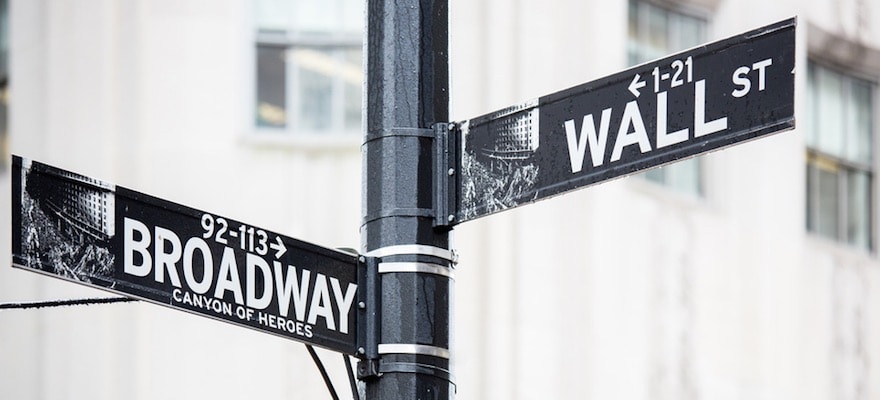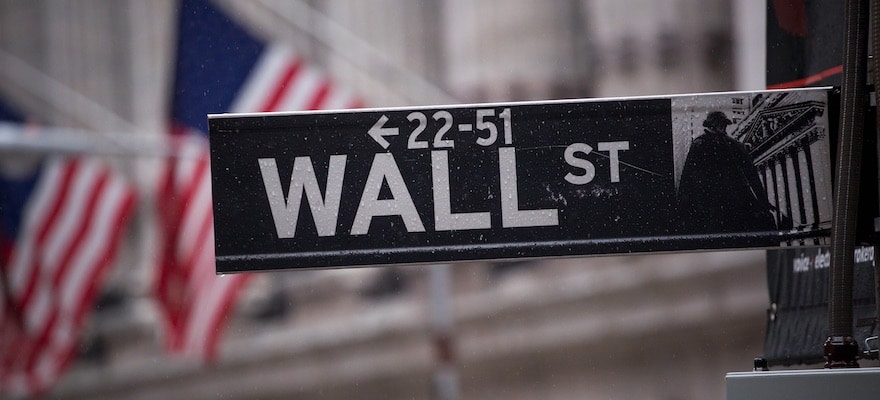As a small fish in a big pond now that myself and a handful of senior traders have joined the Tradeview Markets team, I am now surrounded and overwhelmed by a financial arena that I have successfully and willingly avoided during my 20 plus years on Wall Street as an active trader….the Forex Markets. By no means do I mean to minimize the FX market dynamics at all or the choice of trading the FX markets as opposed to stocks/indexes/futures/bonds etc. I appreciate and understand and I get why but I have stayed away for one reason only…I had to draw the line somewhere and by that I mean non-stop, 24hr open market(s).
I was interviewed last month at Forex Magnates and would refer back to that to get a taste of my background but to paraphrase, “I get it” and “love the action” and that’s why I left it at work when NYSE/NASDAQ bell rang at 4pm Eastern US. Once I got to a certain level in my career and physically got older, my life became a life and not a trader’s lifestyle.
Things have changed now...in this business they always do but much like any type of Risk Management /trading/gambling, whatever you categorize our life as and I have done it all, time and time again I can’t escape the basic principles and parallels that one must possess to be profitable in the long run as ANY type of trader. And for me that means familiarizing myself with the FX markets and now more than ever I believe these disciplines and parallels to hold true. They are as follows and in no particular order of importance, except for the first one:
HAVE A PLAN
Have a plan. Any plan…even a bad plan. At least one has a frame of reference to go by and build from there, right or wrong. Note: By NO means does my plan consist of making a certain amount per day. Too many times traders leave or stop trading when they hit their profit goals, even when they are trading well but too many times when traders have a losing threshold, they continue trading only to exacerbate their loses. I am just as guilty from time to time. My plan on a daily basis has many facets. My plan every morning starts out, not to make money, but to stick to what got me here, don’t break my principles and always to be objective and put my ego aside. The money comes later. I think everyone knows where I’m coming from
BE PATIENT and DON’T OVERTRADE
Not to cheapen our profession but the more active traders dramatically reduce their edge, their average gain per share and their bottom line. Our life is not a casino. I was once in a slump many years ago and that was mainly because the market conditions had changed and I hadn’t readily adapted. I went to my manager of one of our offices who knew my style better than anyone and he told me, “Michael, this is not a video game. This is a business so treat it like one”. Point being that patient traders are more willing to wait for the right opportunities and even more so, recognize and take advantage of those opportunities. I was LITERALLY one of the most active day traders in the country at one point and callously bragged that I held the record for most trades in a day at my firm. I had to be in everything that was moving or that I thought was going to move. Sometimes I had no idea what a company did at all. I was in it because it had price action and volume and survived by being in areas where those two criteria’s are the basis for my stock selection.
Being a gross trader at that point in my career I got rewarded for the amount of trades I did and the Liquidity I provided but one thing got me through it all and is actually the reason why I never branched into FX ( and I’ve had too many offers to count) and this is the follow motto I stick to, “There is always another trade”. You can’t be in everything. Be patient and don’t overtrade.
IT’S OK TO LOSE MONEY AND MAKE MISTAKES
I am not a psychologist but I am an expert in trader psychology. I think it’s true in life in general that one learns more from mistakes than their triumph’s. All too often I talk to traders of all walks of life who trade different financial instruments and when they are a “good run” they think their hot or the market is cooperating, not really going over their trades instead of shopping for expensive watches or cars.

Let me give an example that I use that I taught. Let’s take playing golf. Aside from professional golfers who ALWAYS work on their fundamentals, most amateurs when they play a good round of golf think they were in the zone or had good focus. That’s fine. But very few go and hit golf balls when their done to work on their swing etc. Conversely, you play a bad round and embarrass yourself, you will most likely go hit balls and learn from your mistakes so next time you can execute better. Trading is no different whether it’s the NYSE or FX.
The key to surviving as a trader is to minimize your mistakes and identify your strengths and weaknesses. That also means putting your ego aside. When I first started, their were no “simulated” accounts that many firms offer to work on your trading. I started putting real money to work right away and therefore my losses, and there were many, were real losses. I learned quickly and realized the key to my survival in the infancy stages of my career was to cut my learning curve dramatically and nothing does that better than trading poorly.
PUT EMOTIONS ASIDE
Very hard to do. No matter what the emotion. Bottom line it causes one to lose focus. I do feel for those traders who have to make a living or hit a goal to get by on the short term. One trades differently and I have been there as well. If you get too emotional then you will lose money and have a shorter career than you would like. Not to be redundant but this is a business and businesses have cycles. Example of how I get over being emotional. Besides the upgrade and maintenance of technology, I previously worked at a firm that put a HUGE emphasis on hiring “quants” that would break down each traders DNA so to speak. My point here is that for almost two decades my winning percentage was between 62-65%. So I realize that I am wrong a lot and that’s ok. The bright spot here is that the longer you survive, the more you see and develop a thicker skin over time. It wasn’t always this way but on my trading desks no one knew whether I was up or down on the day. I build on this philosophy with my emotions, “You are only as good as your last trade”.
In closing, I hope this article was helpful and if you have heard all this before than I’m glad you heard it again. Trading stocks and FX are worlds apart in obvious ways but the above disciplines apply to both and if and when I do make that first Dollar/Pound trade, rest assured, the above fore mentioned will give me a greater edge to succeed.













